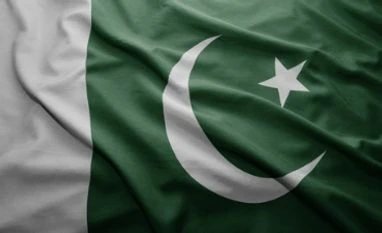Asserting that the Pakistani society was still deeply divided over what the Taliban represented, Mohammad Hanif, a contributing op-ed writer to the New York Times, has recalled the relevance of the saying - "Most countries have an Army, but in Pakistan, it's the Army that has a country."
In his latest opinion piece titled 'Pakistan's Triangle of Hate' in The New York Times, Hanif questions the reasoning of enlisting their "children's killers" in their "campaign against India," while also subtly suggesting and claiming that Islamabad has "evidence that India has funded groups to strike at Pakistan for interfering in Kashmir."
Hanif also outlines the apparent message being sent by the Pakistan Army to the world: You can kill thousands of Pakistanis, but if you later testify that you hate India as much as we do, everything will be forgiven.
The testament to this message is the constant appearance of Liaquat Ali, better known as Ehsanullah Ehsan, on the Pakistani media.
A familiar and dreaded figure in the national media, after every atrocity committed by the Pakistani Taliban, or Tehrik-e-Taliban Pakistan (TTP), Ehsan would make triumphant statements in audio messages or bloodcurdling videos, putting the fear of God in the national media and causing revulsion among Pakistani people, Hanif says.
Soon after the TTP killed three employees of Express TV in January 2014, the television channel invited Ehsan on the air by phone. He very calmly explained the reasons for the murder, and the interviewer promised to give him more airtime, while "begging" for guarantees that there would be no further attacks.
More From This Section
Ehsan had also claimed responsibility for an Easter Day attack in a park in Lahore last year, which killed dozens of people, the librettist for the opera 'Bhutto' says.
Despite a short-lived ban by the state media regulators on a detailed interview with Ehsan before it aired after families of Taliban victims expressed outrage, the Army preferred to parade him and his winning smile in front of TV cameras, and released footage of him telling salacious stories about how his Taliban colleagues had three wives or how the current TTP leader took away his teacher's daughter by force.
The author of the novels - 'A Case of Exploding Mangoes' and 'Our Lady of Alice Bhatti' - further rues that the purpose of this exercise seemed to be suggesting that the Taliban were not a formidable force with an ideology and deep roots in Pakistani society, but rather a bunch of sexual perverts bankrolled by India; the latter, being Pakistan's forever existential enemy.
Referring to them as "supposed assets in Pakistan's historic feud with India", Hanif asserts that even the Taliban want a just society, with the only difference lying in the way they want to achieve it; the methods surely being unacceptable.
"If they dare to attack Pakistan, then, God willing, we will share happiness and grief with all Pakistanis," Pakistani Taliban's spokesman Maulvi Omar said when India and Pakistan were on the verge of war in 2008.
"We will put the animosity and fighting with the Pakistani Army behind us, and the Taliban will defend their frontiers, their boundaries, their country with their weapons," he had added.
Drawing attention towards the much-in-news Dawn Leaks fiasco and its aftermath, Hanif says that the Army seems to be propagating a message that it "won't abide any discussion with civilians over who is a good or bad militant, or a good or bad Pakistani," and "will have the last word on this subject."
In a suggestive conclusion, while asserting that many "Pakistanis still love the Army, and many politicians fear it," Hanif advises the Pakistani politicians to stop calling one another traitor just to please the Army, only if they want to take their country back.
)